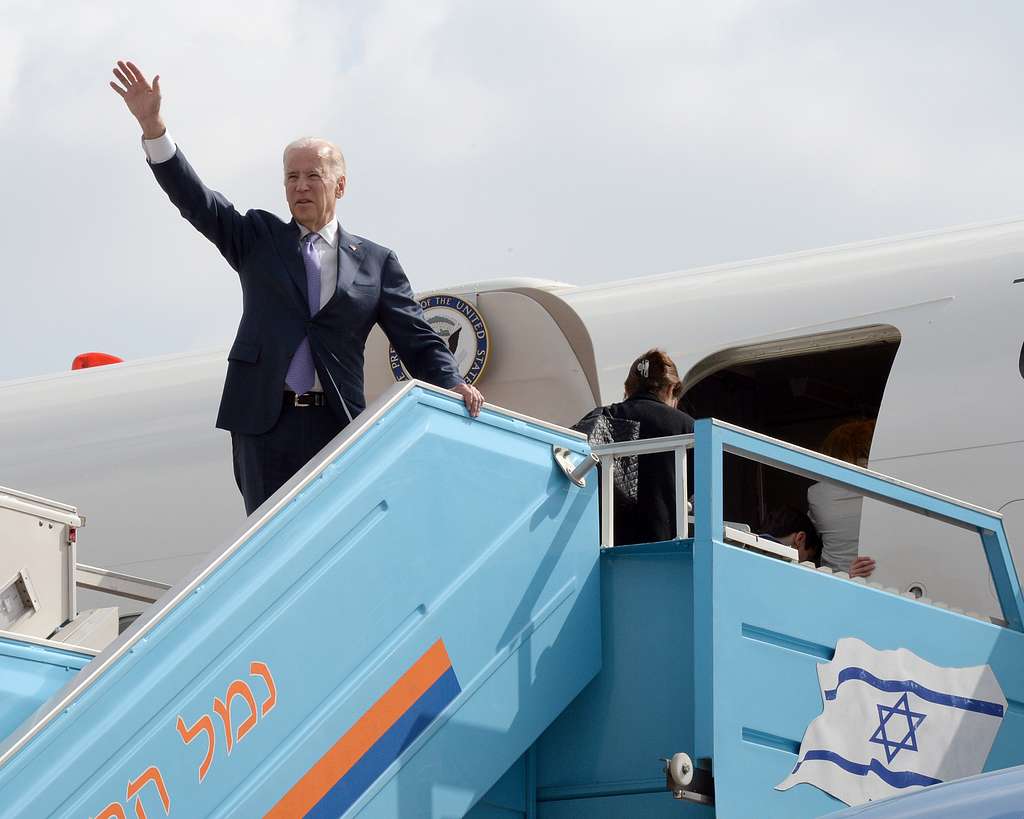What does Biden’s trip to Israel and the Gulf mean for Italy?

The trip to the Gulf of Biden is decisive. For Italy there is a lot of meat on the fire. The analysis by Francesco Galietti, expert in strategic scenarios and founder of Policy Sonar
Eventually Joe Biden's long-awaited trip to the Gulf was confirmed. It will take place in the middle of next month, after a rather exhausting ping-pong of half confirmations and timid denials. The trip promises to be quite complex, and also includes a virtual summit with the other leaders of the so-called I2-U2 group, namely Israel, India and the Arab Emirates as well as the United States.
An important part of the agenda of meetings will, for example, be absorbed by delicate aspects of a military nature. In particular, the hypothesis of incorporating Saudis and Emiratis in the American anti-missile umbrella was leaked. These scenarios are the subject of very intense discussions with Israeli partners, among the most experienced in that area when it comes to clearing the skies of Iranian missiles.
The role of Jerusalem is also emphasized by the stop that Biden will make in Israel before proceeding to the Gulf. Biden will see political leaders and the Israeli deep state. It is safe to bet that, if the US-Israel bilateral is a success, part of the credit will go to the preparatory work of Draghi, Mitsotakis and Erdogan. These are the main Mediterranean and NATO leaders, whose flow of phone calls, meetings and contacts with Israel, but also of overseas travel, has been particularly intense in recent times.
Needless to say, the stone guest will be Iran. Both the Israelis, the Saudis and the Emiratis have so far looked at Biden, suspected of wanting to re-enact the détente policies with Tehran that had characterized Barack Obama's long season in the White House. To this suspicion was added the coldness towards the Saudi Crown Prince on the part of Joe Biden, unwilling to let it run on the Saudi iron fist against Saudi opponents. The choice to close ranks with Israel, and to extend a (big) hand to the Gulf partners, signals a turning point: Washington does not intend to spoil the privileged relations with the Gulf, which are now about half a century old between ups and downs. All the more reason, the hypothesis is not on the table now that the Eurasian partners, including Iran itself, have decided to side with Putin's Russia in the aftermath of the invasion of Ukraine.
Furthermore, the choice of inserting a summit with India in the frame of this trip appears to be interesting. Washington took note (with regret) of India's decision not to join Western sanctions against Moscow, and the Duma spokesman a few days ago launched the idea of an 'alternative' G8 that would see India, Iran and Brazil among the members. This is clearly a provocation, which nonetheless treacherously starts from New Delhi's reluctance to steadfastly support the Western bloc.
In any case, the US does not at all compromise the relationship with New Delhi. India, in fact, is a stable member of the Indo-Pacific platform, and they are very close in the containment work of China together with their partners (USA, Australia and Japan).
There is more: the web of relations that binds the Gulf, the Emirates in the lead, and India is increasingly dense. Michael Tanchum explained this very well in his suggestive study India's Arab-Mediterranean Corridor: A Paradigm Shift in Strategic Connectivity to Europe , which describes the strategic potential of the Indo-Arab-Mediterranean corridor. At its core is the manufacturing value chain in food production and processing.
The Emiratis use India as a 'garden outside the city', financing the creation of dedicated infrastructures in the Indian subcontinent and fielding the formidable terminal operators of DP World. Added to this is the integrated hydrocarbon chain through multi-billion dollar investments in petrochemical production. Innovative technologies, including those relating to the generation, storage and use of energy produced from renewable sources, are the most promising sectors for the future integration of the value chain in the India-Europe Arab-Mediterranean corridor.
Italy has what it takes to integrate itself in the best possible way both in the food chain and in the petrochemical chain. On a historical level, then, it would be a return to the patterns that governed the trafficking of spices between the Serenissima and the East until 1498, more precisely, when the discovery of the Carreira da India – the Route to India of the Portuguese Vasco from Gama. All that remains is to ask how many, in the small circle that thinks about our energy diplomacy, will accept this strategic alternative.
This is a machine translation from Italian language of a post published on Start Magazine at the URL https://www.startmag.it/mondo/cosa-potrebbe-significare-per-litalia-il-viaggio-di-biden-in-israele-e-nel-golfo/ on Sat, 25 Jun 2022 05:39:10 +0000.
